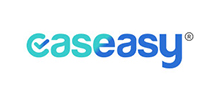Continuing your education in Canada can help you reach your academic goals, further your career, and expand your professional opportunities. Whether you decide to enrol at a college to obtain a certificate or diploma, or at a university to obtain a bachelor’s or post-graduate degree, a Canadian credential will take you far!
THE DIFFERENCE BETWEEN COLLEGE AND UNIVERSITY IN CANADA
In Canada, there are significant differences between higher education institutions labeled colleges and those designated universities. Knowing the distinctions will help you decide which institution is the better option for you.
Canadian Colleges Unlike in the United States, where the term college refers to local or community schools that confer undergraduate degrees, the college system in Canada was developed to provide technical training and diplomas that respond to shifting labour trends and the needs of a changing economy.
Canadian colleges tend to:
- serve local communities
- focus on preparing students for professions in the trades
- provide students with career training, such as apprenticeships
- develop students’ employment skills with a focus on vocational training
- have smaller class sizes that provide more individualized attention per student
- offer short-term certificate and diploma programs
Canadian Universities
Universities are academic institutions regulated by provincial legislation, but they are autonomous when it comes to academic matters, such as setting the course for their own programs, the hiring of faculty and instructors, and establishing policies and procedures. Distinct Canadian Colleges and Universities | © 2018 World Education Services. All rights reserved. 4 from colleges, which award diplomas and certificates, universities in Canada are defined as degree-granting institutions that offer bachelor’s, master’s, and doctoral degrees.
Canadian universities typically:
- focus on developing students’ analytical skills
- provide academic and professional programs
- have larger class sizes
- offer degree programs that take approximately three to four years to complete
- require significant self-directed study and student independence
Many international students and newcomers to Canada initially gravitate toward colleges because they are more affordable, offer shorter programs, and allow students to secure a quick, stackable credential that can translate to more immediate employment opportunities. However, if you are looking to obtain your undergraduate degree, or pursue a professional career in a field such as medicine, law, academia, or research, then a university is the better option. Whether you choose a college or university depends on your academic goals and future career aspirations.
APPLICATION PROCESS CHECKLIST
When applying to Canadian colleges and universities, you will need to submit official documents from your authorized educational institution to provide proof of your academic credentials.
These may include:
- transcripts
- mark sheets
- diplomas
- degree certificates
If these documents are not in English or French, you may need to provide a certified or official translation.
The checklist below will help guide you through the application process: Choose your school:
You can research schools online using the searchable databases Universities Canada and Colleges and Institutes Canada. If you are able, attend a post-secondary education fair in Canada. You will meet with recruitment and admissions staff, faculty, and current students to learn more about the school and program you are interested in attending.
Gather your documents:
It is likely easier and quicker if you gather all your supporting documents while you are still in your country of origin.
Prepare and submit your application and supporting documents:
Visit specific college and university websites to determine whether you meet the admissions requirements (this will depend on your grades, language proficiency, academic credentials, and other factors). Once you determine that you are eligible, apply on the school’s website or, if applicable, through the centralized application service. Consider applying to more than one program or university, in case you are not admitted to your top choice school.
Secure a study permit:
Apply for your permit as soon as possible after receiving your admission letter.
Study Permits:
Obtaining your study permit will likely be the most time-consuming part of the application process. International students who plan to study for six months or longer at a Canadian educational institution will need to secure a study permit before they arrive. You can find more information about how to apply for a study permit on the Government of Canada’s website.
You can apply in one of two ways:
- apply online
- send in a paper application
To obtain a study permit, you will need to provide the following:
- proof of adequate funds for tuition, living, and transportation expenses
- evidence that you are coming to Canada to study and not for other purposes
- grounds that you will leave Canada at the end of your studies.
You may also be required to provide the following documents or information:
- police certificate
- medical certificate
- biometrics, such as fingerprints and a photo
The Government of Canada’s website and your university’s international office are your best resources when it comes to navigating the study permit process.













